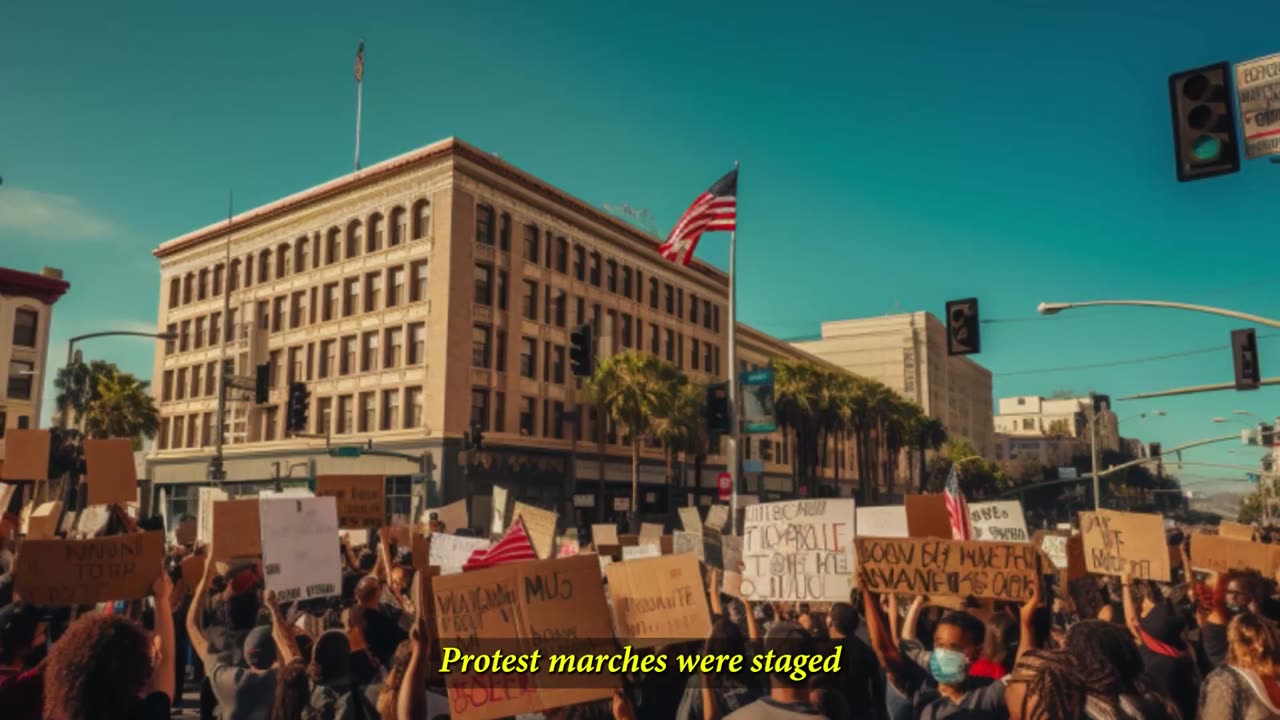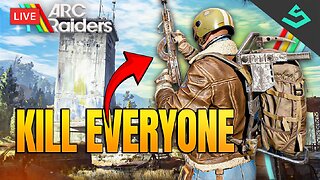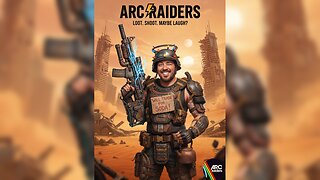Premium Only Content

Not Popular but Necessary
Racial lynch mobs have never been something Americans like to talk about. And for good reason. The mention of Simon Legree, carpetbaggers, men in bedsheets, or late-night necktie parties only fosters feelings of guilt and shame or hatred and revenge, depending on the make-up of one’s audience.
For decades, the topic was locked away in the basement and ignored. Rather than modeling Christian approaches to racial reconciliation through personal repentance, forgiveness, and restoration, a cottage industry of religious-themed resentment arose. So-called Christian and Islamic leaders, well-paid for their efforts, demanded their congregations seek justice by attacking the system that gave us those rights.
As the social norms changed in America, a reverse lynch mob mentality arose. Our Constitution provides every citizen with a legitimate process of legal redress. But rather than channel their listeners into taking advantage of those rights, the fiery rhetoric of race-baiters called for action in the streets with victims of all races being killed or maimed, businesses looted and burned, and the hatred index rising on all sides.
The social justice movement of today demands a rush to judgment, particularly when a case involves at least one white policemen, a black victim, and photographic evidence of the alleged crime. A passer-by with a cellphone will do.
All of the ingredients for a superheated racial confrontation came together in the death of civil rights icon, George Floyd. The video images were powerful and damning for several white policemen charged with Floyd’s death; particularly so for Derek Chauvin, the Minneapolis officer whose knee pinned Floyd’s neck to the concrete, leading him to blurt out, “I can’t breathe.” The circumstantial evidence pointing to Chauvin’s role in the death of Floyd led the officer to enter a guilty plea. Protest marches were staged in 350 cities, leading to violence in 20 locales. The National Guard was called up to protect property in 23 states.
Only after the violence had subsided did fresh evidence in Chauvin’s case begin to emerge, but by then, it was too late. The guilty plea stood, and Chauvin began serving his prison time. Since then, Derek Chauvin has filed two unsuccessful appeals and another plea for acquittal is pending before the Supreme Court.
Taking a second look at Chauvin’s conviction may not be popular, but in our opinion, it IS necessary.
An unlikely defender of Chauvin attempted at Chauvin’s 2021 murder trial to provide the court with evidence which Chauvin believes could have made a difference in the case. Topeka, Kansas physician, Dr. William Schaetzel reviewed the George Floyd autopsy results, which he says prove that Floyd did not die from asphyxiation, but rather from a rare tumor which can release a fatal flow of adrenaline during times of peak stress. The doctor also revealed high levels of fentanyl were found during the autopsy, which also may have contributed to the death of Floyd.
Chauvin blamed a trial attorney and the judge at his murder trial for not informing him of these results, according to a report in the Western Journal.
Perhaps, the court thought that the risk of further violence outweighed the damage to the rights of the accused, but that may be OUR rush to judgment.
https://restoringjustice.us/
https://www.classy.org/give/461066/#!/donation/checkouthttps://opinionschannel.com/
https://twitter.com/OpinionsChannel
https://rumble.com/user/OpinionsChannel
https://www.instagram.com/theopinionschannel/
https://www.youtube.com/@opinionschannel
-
 1:09:52
1:09:52
VapinGamers
2 hours ago $0.76 earnedTools of the Trade - EP11 Highs and Lows of Streaming with Gothix - !rumbot !music
10.7K1 -
 LIVE
LIVE
SOLTEKGG
3 hours agoARC RADIDERS "First Month-Anniversary on Rumble"
130 watching -
 2:14:09
2:14:09
LFA TV
21 hours agoRUMBLE RUNDOWN WEEK 6 with JEREMY HERRELL AND SHAWN FARASH 11.15.25 9AM
160K7 -
 1:44:16
1:44:16
HotZone
5 hours ago $3.70 earnedLive: The Hidden Crisis in US Special Ops: What They’re Not Telling You About Women in Combat
13K12 -
 53:25
53:25
Athlete & Artist Show
19 hours agoBombastic Bets & Games w/ Team Canada Veteran!
11.5K -
 53:13
53:13
X22 Report
4 hours agoMr & Mrs X - It All Revolves Around Marxism, Think Political Correctness, Midterms Are Safe - EP 16
74K19 -
 44:27
44:27
I_Came_With_Fire_Podcast
10 hours agoThe Right's Drift into Neo-Marxism & America's Populist Crossroads
12.7K7 -
 LIVE
LIVE
Amarok_X
3 hours ago🟢LIVE 24 HR STREAM? | ARC RAIDERS TO START | OPERATION 100 FOLLOWERS | USAF VET
51 watching -
 LIVE
LIVE
Pepkilla
3 hours agoDay 2 of Camo Grinding Black Ops 7 ~ Until My Brain Rots
51 watching -
 27:34
27:34
marcushouse
5 hours ago $1.06 earnedWOW! I Was NOT Ready For This One… 🤯 | Starship & New Glenn Lead The Race!
4.65K2